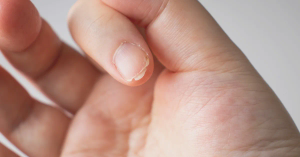As teens become more health-conscious and fitness-focused, gym supplements often come into the picture. Whether it’s protein powder, pre-workouts, or fat burners, these products are marketed as tools to enhance performance, build muscle, and speed up recovery. However, many of these supplements can be harmful if not used properly—or at all.
As a parent, it’s important to have an open and honest conversation with your teen about the risks, benefits, and necessity of these supplements.
Understanding the Appeal of Gym Supplements
Teens are often influenced by fitness trends, social media, and the pressure to achieve certain body ideals. Gym supplements promise quick results, such as muscle gain, fat loss, or increased energy. Many teens turn to these products because they want to look like the fitness influencers they admire or to enhance their athletic performance.
As a parent, it’s crucial to understand why your teen may be interested in supplements before addressing the issue. Some common motivations include:
• Desire for faster results – Teens may want to see physical changes quicker than their bodies are naturally capable of.
• Peer influence – If their friends or teammates are using supplements, they may feel pressured to follow suit.
• Athletic performance – Teens involved in sports may be seeking an edge in their performance.
Understanding their motivation helps you approach the conversation with empathy and guidance.
The Risks of Gym Supplements for Teens
While some gym supplements are generally safe for adults when used responsibly, the same cannot be said for teens. Here’s why:
• Lack of regulation – The supplement industry is not tightly regulated. Some products may contain harmful ingredients or contaminants not listed on the label.
• Hormonal imbalances – Some supplements, especially those aimed at boosting testosterone or fat-burning, can interfere with a teen’s hormonal development, leading to serious long-term health problems.
• Kidney and liver damage – Excessive protein and other substances can overload vital organs, increasing the risk of damage over time.
• Addiction and dependency – Many supplements contain stimulants that can lead to dependence, affecting sleep, appetite, and mood.
It’s important to explain to your teen that their bodies are still developing, and using supplements can interfere with their natural growth and health.
The Benefits and Necessity of Supplements
While many supplements are unnecessary for teens, some products can be beneficial when used appropriately:
• Protein powder – If your teen is not getting enough protein from their diet, a protein supplement can be helpful for muscle recovery. However, whole food sources like eggs, nuts, and legumes should always be the first choice.
• Creatine – Often used by athletes for enhanced performance, creatine can be safe in small doses when used by older teens (18+). It helps with energy during high-intensity activities but should be approached cautiously.
• Electrolyte powders – These are useful for teens involved in intense sports to help replenish lost electrolytes after sweating heavily.
It’s important to note that most teens do not need these supplements if they are eating a well-balanced diet. Often, proper nutrition and hydration are enough to support their fitness goals.
Having the Conversation: Tips for Parents
Here are some key points to consider when talking to your teen about gym supplements:
• Start with understanding – Ask your teen why they’re interested in supplements and listen carefully to their concerns and motivations.
• Educate about the risks – Explain the potential side effects and long-term health risks of using unregulated supplements.
• Focus on nutrition – Emphasize the importance of a balanced diet, full of whole foods like fruits, vegetables, lean proteins, and healthy fats.
• Be open about peer pressure – Acknowledge that social media and friends might be influencing their choices. Encourage them to make independent decisions based on what is truly best for their body.
• Promote natural alternatives – Teach them how to enhance their fitness naturally through consistent exercise, proper nutrition, and adequate rest.
• Encourage consulting a professional – If your teen is still interested in supplements, suggest they speak with a healthcare provider, nutritionist, or personal trainer to ensure they are making safe choices.
What to Do If Your Teen Is Already Using Supplements?
If you discover that your teen is already using supplements, it’s important to address the situation calmly and constructively:
• Discuss the supplements they are using – Find out what exactly they are taking and research the ingredients together.
• Evaluate the necessity – Help them understand whether the supplements are truly benefiting them or if they are just a temporary fix.
• Encourage responsible use – If they continue using supplements, ensure they are using products that are safe and appropriate for their age. Monitor their intake and any potential side effects.
• Monitor their overall health – Pay attention to any changes in mood, energy levels, or physical health. If they experience any adverse effects, stop using the supplements and consult a doctor.
Final Thoughts
As a parent, it’s important to foster a healthy relationship with fitness and body image. Gym supplements are not a magic solution, and they should not replace proper nutrition, exercise, and self-care. Encouraging your teen to focus on sustainable habits and educating them about the risks of supplement use is crucial for their overall health and well-being.
By having an open and honest conversation about supplements, you help guide your teen toward making safe, informed choices that will benefit them in the long run.








